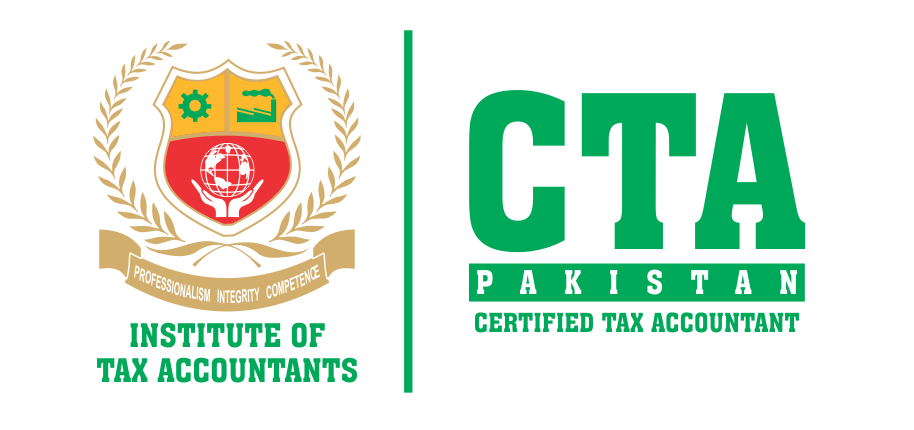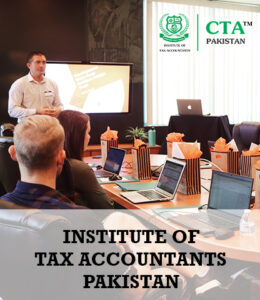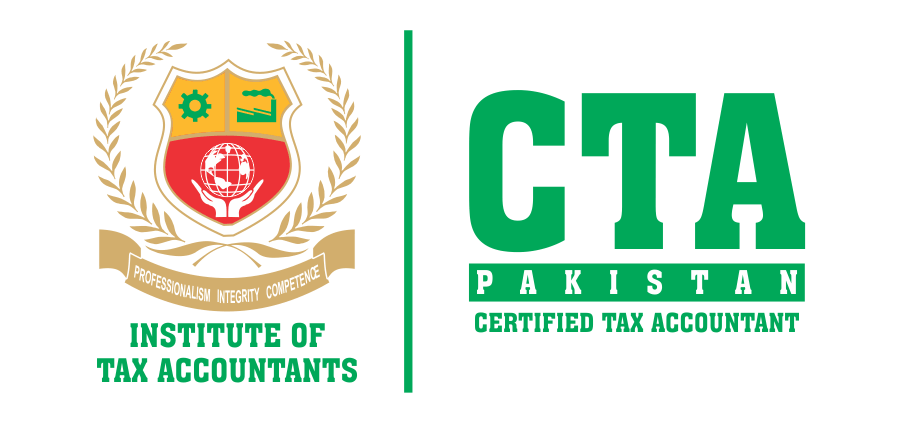What Is Tax Consulting?
Do you want to help people and organizations improve their financial security? If so, a career in tax consulting might appeal to you. Tax consulting helps people make informed decisions about tax-related issues. Tax consultants use their expertise to help clients comply with tax regulations and take advantage of adjustments, deductions, and credits that let them keep more of their money.
The Federal Board of Revenue (FBR) also estimates that 90% of taxpayers get help when they prepare their tax returns.
What Is a Tax Consultant?
Tax consultants help their clients save money by making wise financial decisions about tax-related issues. They interview clients to gather information about their financial situations and devise strategies to help them reduce their tax liability by taking advantage of tax credits and deductions. Tax consultants ensure their clients fulfill their tax obligations and follow the law.
What specific job responsibilities do tax consultants perform? Read on to learn more about these professionals’ job duties and day-to-day responsibilities as tax consultants.
What Does a Tax Consultant Do?
This section explores some of the tasks tax consultants perform each day and what it takes to succeed in the field. Specific job duties and areas of focus vary by position. The best tax consultants enjoy solving problems and working with people, demonstrating both accuracy and honesty in their work.
Tax consultants help clients with a variety of tax-related issues. Mainly, they make sure clients comply with tax rules and regulations. They also use their expertise and knowledge of the U.S. tax code to help individuals and businesses pay what they owe. These professionals help individuals and organizations minimize tax liability by decreasing their taxable income and taking advantage of all applicable adjustments, deductions, and tax credits.
Tax consultants often prepare tax returns for clients, or they provide information and advice to help clients fill out their own tax returns. They answer client questions, help them prepare for future tax situations, and analyze information to ensure compliance with government regulations. These professionals may check others’ work to detect errors in tax preparation. The legal and logistical complexity of client situations varies considerably. Some tax advisors specialize in a narrow area of tax law, while others take a generalized approach.
Tax consultant services can help people deal with concrete issues like setting up trusts, managing taxes from rental incomes, and understanding the tax implications of births, deaths, divorces, marriages, and other life events.
Tax consultants should boast strong skills in communication, critical thinking, and complex problem solving. Because tax consultants work with the public, they need excellent interpersonal and customer service abilities, as well. They should know how to listen to people to understand their financial situations and what type of help they need. They must be able to clearly communicate verbally and in writing.
Tax consultants must know how to decipher complex legal information. They should work well with numbers, stay organized, and pay attention to detail. It also helps to hold strong legal research skills and an understanding of laws, legal codes, government regulations, and agency rules. Tax professionals must demonstrate proficiency in technology, including accounting software, email software, financial analysis software spreadsheet software, and tax preparation software. They should feel comfortable working with personal computers.
Tax professionals work in office environments and use personal computers with software programs to complete job responsibilities. They also use telephones to communicate with clients and may consult tax law handbooks to determine the correct procedures for dealing with atypical tax situations.
Tax professionals work in a wide variety of positions as income tax preparers, certified income tax preparers (CTP), enrolled agents, master tax advisors, tax associates, tax preparers, corporate tax preparers, and tax specialists.
A variety of organizations employ tax professionals, including professional services firms like public accounting firms, specialty tax consulting firms, and law organizations with their own tax practices. Government agencies at the local, state, and federal level also employ tax consultants. Tax consultants also work in corporate tax offices for U.S. and international corporations, and in some foundations and nonprofit groups.
Tax professionals work in a wide variety of positions as income tax preparers, certified income tax preparers (CTP), enrolled agents, master tax advisors, tax associates, tax preparers, corporate tax preparers, and tax specialists. Some consultants specialize in more narrow areas of tax consulting, such as corporate tax, income tax, or international tax. The next section delves into more detail about specific job responsibilities for tax consultants.
What Are the Responsibilities of a Tax Consultant?
Prepare Tax Returns
Tax consultants prepare or help prepare tax returns for individuals, organizations, and businesses. The tax returns they prepare vary from simple to complex, and they require significant knowledge of tax rules and regulations. These professionals figure out strategies to minimize taxation by taking advantage of tax deductions and credits.
Determine Taxes Owed
Tax consultants determine how much their clients owe in taxes. In some cases, they determine how much clients overpaid in taxes. They use computers and adding machines to calculate the correct amounts. They follow while following tax form instructions and consulting tax tables to make correct determinations.
Interview Clients/Gather Information
Tax consultants gather relevant financial and tax information from their clients through interviews. Such information includes clients’ taxable income, allowances, and deductible expenses. In some cases, tax consultants use this information to prepare clients’ tax returns. In other instances, they provide information to clients so they can prepare their own tax returns.
Use Technology
Employers often require tax professionals to possess multiple technology skills to perform their job duties. These may include an understanding of how to use accounting software (e.g. Intuit QuickBooks), email software (e.g. Microsoft Outlook), and spreadsheet software (e.g. Microsoft Excel). Tax consultants also need to know how to use tax preparation software and financial analysis software.
Give Information to Clients
Clients often hire tax consultants to gather information and perform legal research for them. Tax consultants must know how to give taxpayers the data they need to complete their tax forms correctly. They should also know how to explain state and federal tax laws to individuals and organizations.
Understand Tax Rules and Regulations
Because the tax code changes so often, tax consultants must continually update their knowledge to ensure they give clients accurate information. This may include taking professional development and continuing education courses, active membership with tax consultant professional groups, and attending conferences.
What Qualifications Do You Need to Become a Tax Consultant?
EDUCATION:
ON-THE-JOB TRAINING Many tax consultancy jobs require related work experience and training.
COLLEGE DEGREE Tax consultants do not need any specific formal education or training, but many tax professionals hold at least a bachelor’s degree in fields like accounting or finance.
REGISTRATION Professionals who prepare tax returns must register with the IRS as tax return preparers.
SKILLS:
SPEAKING Tax consultants need to be able to speak and communicate effectively with their clients and others.
ACTIVE LISTENING Tax professionals need to be able to listen closely without interrupting to comprehend clients’ financial situations.
CRITICAL THINKING Tax consultants need to effectively use reasoning and logic to create strategic approaches to questions.
COMPLEX PROBLEM-SOLVING Working with tax information often involves complex problems, so tax professionals must know how to effectively identify and develop strategic solutions to problems.
ABILITIES:
WRITTEN COMPREHENSION Tax professionals must know how to understand and read written information.
ORAL COMPREHENSION Tax consultants need to understand and listen to spoken information.
DEDUCTIVE REASONING Professionals in tax consultancy must know how to identify answers or approaches to problems using reasoning and logic.
ORAL EXPRESSION Tax consultants must communicate ideas and information so others can easily understand it.
KNOWLEDGE:
TAX CODE Tax consultants must possess advanced knowledge of U.S. tax rules and regulations.
ENGLISH LANGUAGE Tax consultants working in the U.S. must know how to speak and read English, understanding the rules of grammar, spelling, and composition.
MATHEMATICS Tax professionals need a solid grasp of arithmetic, statistics, algebra, calculus, and geometry.
CUSTOMER SERVICE Because tax consulting involves working directly with people, tax consultants must understand how to effectively provide services to customers.
ECONOMICS AND ACCOUNTING Tax professionals need to understand accounting and economic principles and practices, including reporting and analysis of financial data and the financial markets.
How Are Tax Consultants Employed?
- Public Accounting Firms:Many tax consultants work for public accounting firms, which provide accounting services to other organizations. These consultants provide accounting, auditing, and tax services to clients.
- Local, State, and Federal Government:Government agencies at the local, state, and federal level all employ tax consultants. The IRS hires tax consultants to conduct reviews of policies, evaluate taxpayer education programs, and provide technical assistance to staff.
- Specialty Tax Consulting Firms:Some tax consulting firms focus on specialized areas of tax law, including international tax law, income tax law, and payroll tax law. Tax consultants must possess expert knowledge to work at these specialty firms.
- Corporate Tax Offices:S. and international corporations often feature their own corporate tax offices, which employ tax consultants. Tax professionals who work in these settings often perform tax planning and research on behalf of their company.
- Law Organizations:Tax consultants may work at law organizations with their own tax practices. Tax situations for legal firms can become very complex, necessitating specialized help.






